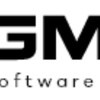In an era defined by digital innovation and on-demand services, laundry application development has emerged as a game-changer in the realm of household chores. Gone are the days of lugging heavy laundry bags to the laundromat or spending precious time sorting, washing, and folding clothes. With the advent of laundry applications, the chore of doing laundry has been streamlined into a convenient, efficient, and hassle-free experience. This article explores the transformative impact of laundry application development, examining its key features, benefits, and implications for both consumers and laundry service providers.
The Evolution of Laundry Services: Laundry services have come a long way from the traditional washboard and tubs to the modern-day laundromats equipped with state-of-the-art washing machines and dryers. However, the inherent challenges of time, convenience, and accessibility have persisted, prompting the need for innovative solutions. Laundry application development represents the next frontier in the evolution of laundry services, leveraging mobile technology to revolutionize the way we approach laundry.
Key Features of Laundry Applications: Laundry applications boast a range of features designed to enhance the user experience and streamline laundry operations. These features typically include:
- On-Demand Scheduling: Users can schedule laundry pickup and delivery at their convenience, eliminating the need for manual coordination and planning.
- Real-Time Tracking: Users can track the status of their laundry orders in real-time, from pickup to washing, drying, and delivery, providing transparency and peace of mind.
- Customized Preferences: Users can specify their laundry preferences, including detergent type, water temperature, and special instructions, ensuring a personalized laundry experience.
- Secure Payment Processing: Laundry applications offer secure payment processing, allowing users to pay for services online using credit/debit cards, digital wallets, or other payment methods.
- Feedback and Ratings: Users can provide feedback and ratings based on their experience, helping to improve service quality and reliability over time.
Benefits for Consumers: For consumers, laundry application development offers unparalleled convenience, flexibility, and peace of mind. Whether you're a busy professional, a time-strapped parent, or a student with a hectic schedule, a laundry app provides a convenient solution to your laundry needs. By outsourcing the chore of laundry to a professional service, consumers can reclaim valuable time and energy to focus on more important tasks and activities.
Benefits for Laundry Service Providers: For laundry service providers, the adoption of laundry applications opens up new avenues for business growth and customer acquisition. By leveraging mobile technology, laundry service providers can reach a wider audience, attract new customers, and differentiate themselves from competitors. Additionally, laundry applications enable providers to optimize operations, improve efficiency, and reduce overhead costs, leading to increased profitability and sustainability in the long run.
Challenges and Considerations: While laundry application development offers tremendous potential for innovation and convenience, it also presents its fair share of challenges and considerations. These may include:
- Logistical Challenges: Managing logistics such as pickup and delivery routes, inventory management, and order fulfillment can be complex and resource-intensive.
- Quality Control: Maintaining consistent quality standards across all stages of the laundry process, from washing and drying to folding and packaging, is essential for ensuring customer satisfaction.
- Data Security: Safeguarding sensitive customer data, including payment information and personal preferences, is paramount to building trust and credibility in the digital age.
Future Trends and Opportunities: Looking ahead, the future of laundry application development is ripe with potential for innovation and growth. Emerging technologies such as artificial intelligence, machine learning, and Internet of Things (IoT) are poised to transform the landscape of laundry services, enabling predictive maintenance, automated order processing, and personalized recommendations. Additionally, the growing emphasis on sustainability and eco-friendliness presents opportunities for laundry applications to adopt green practices such as water recycling, energy efficiency, and eco-friendly detergents.
Conclusion: In conclusion, laundry application development represents a significant advancement in the realm of household services, offering consumers unprecedented convenience and flexibility while empowering laundry service providers to streamline operations and enhance customer satisfaction. By harnessing the power of mobile technology, laundry applications have the potential to revolutionize the way we approach laundry, making the chore of doing laundry a thing of the past. As the demand for on-demand services continues to rise, laundry application development is poised to play a pivotal role in shaping the future of laundry services, redefining convenience and efficiency for generations to come.

No comments yet